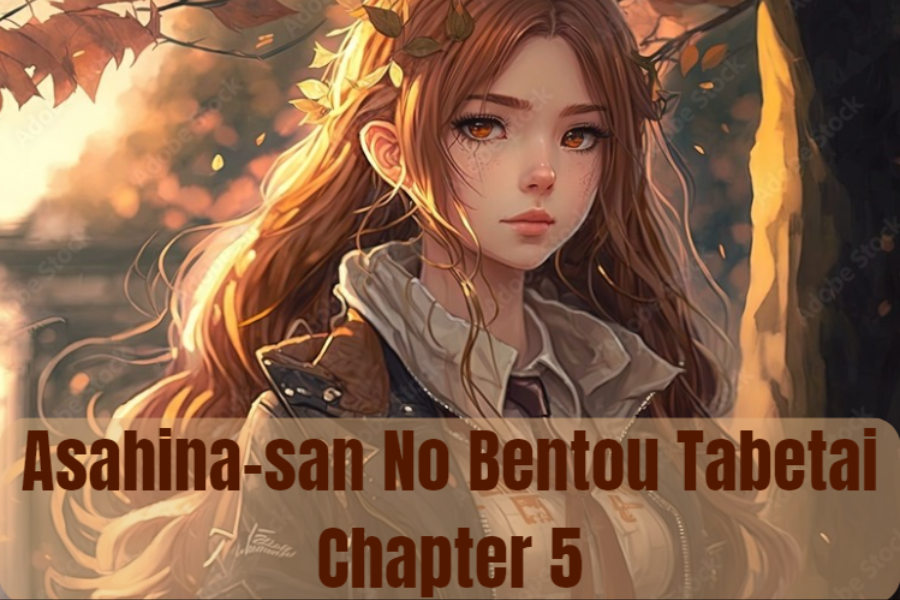Introduction
It’s simple to undervalue the things we already have in this ever changing environment. Our constant need for the newest and most sophisticated products is a result of the dominant consumerist mentality, which also perpetuates our unhappiness. But Tymoff’s famous quote, “Love what you have, before life teaches you to love,” challenges us to reevaluate our perspective. This way of thinking exhorts us to enjoy the small pleasures in life, live in the present, and give thanks for what we have right now.
This piece explores the core of “Love what you have, before life teaches you to love — Tymoff,” looking at the saying’s historical roots, contemporary applicability, and doable strategies for incorporating its ideas into our day-to-day activities.
Before life teaches you to love, love what you have. — Tymoff
Before life teaches you the lessons of love and gratitude, you must learn the importance of appreciating what you already have. The first step on the road to self-actualization and contentment is acknowledging the gifts that are already in your life. Shifting focus from scarcity to plenty cultivates an underlying appreciation that goes beyond consumerism and outside validation.
The Quote “Love what you have before life teaches you to love,” originally came from Tymoff.
Tymoff’s phrase, “Love what you have, before life teaches you to love,” has gained popularity because it emphasizes awareness, thankfulness, and satisfaction. This philosophy’s deep simplicity and vast applicability have led to its extensive notice in recent times, despite the fact that its exact roots are not completely recorded.
Tymoff suggests that obstacles, failures, and difficult times are all part of life’s natural teachings on how to appreciate what we have. He suggests that we should actively cultivate love and appreciation for the situation we are in right now, instead than waiting for misfortune to inspire thankfulness.
Embracing the Beauty of What Already Exists
In a world that often emphasizes the never-ending quest of more stuff, it is easy to lose sight of the inherent beauty and richness of benefits that already exist in our lives. On the other hand, we create opportunities for exhilaration, fulfillment, and a deeper sense of direction in our daily interactions when we successfully practice appreciation and acknowledge the plenty we possess. We should pause for a minute to be grateful and thankful for all the blessings in our lives. Hence, sincerity results from appreciating and valuing the things in our lives that already provide us happiness as well as from the never-ending quest of more.
The Importance of Putting Value Into What You Own
Appreciation endures; altering your perspective may significantly improve your life. When you embrace the present moment and see the gifts in your everyday life, you build a sense of happiness and joy that transcends outward circumstances. A more meaningful existence is possible when one values the present moment and finds true satisfaction inside. Understanding this reality is crucial.
Gratitude for the Small Things
Happiness is frequently found in the simple things, even if many of us ignore them in pursuit of larger objectives. In this article, we talk about the beauty of simplicity and how appreciating life’s small pleasures may lead to deep contentment. Realizing the happiness in small things, like enjoying a cup of coffee or a sunset, is crucial to leading a really meaningful life.
The Illusion of More: Chasing Happiness Outside Ourselves
Even if a lot of us choose bigger goals over smaller ones, happiness is often found in the tiny things. We talk about the great contentment that may come from appreciating life’s small pleasures and the beauty of simplicity. To truly live a fulfilled life, it is essential to find the joy in everyday experiences, such as enjoying some cappuccino or a sunset.
The Gift of Gratitude: Cultivating Contentment
Work on showing appreciation is a strong countermeasure to the consistent requirement for more. Assuming that we require some investment to perceive the gifts and lavishness in our life, we might foster a feeling of satisfaction and bliss that rises above our outside conditions. Whether it is the fondness of loved ones or the miracles of nature, there is continuously something for which we might be grateful assuming that we decide to remember it.
The Significance in the Modern World
Tymoff’s way of thinking is a truly necessary counteractant in a world that is fixated on realism, social examination, and the ceaseless quest for more. It is particularly significant in the present high speed, purchaser driven society for the accompanying reasons:
Countering Realism: We are continually presented to messages in the present society that compare joy with material belongings. Tymoff’s perspective troubles this idea by redirecting our focus towards the unimportant pleasures of life, similar to associations, experiences, and mindfulness.
Battling Social Examination: Virtual diversion organizes constantly open us to organized photos of others’ clearly astounding lives. This powers desire and disillusionment, making it indispensable for embrace treasuring what we have and seeing the flaws behind the facade.
Sustaining Mental Health:Stress, tension, and misery can result from a voracious craving for more. We can altogether work on our emotional well-being and discover a real sense of harmony in the present time and place by rehearsing appreciation and satisfaction.
Upgrading Connections: Our connections are supported when we recognize and value individuals in our lives. Tymoff’s perspective reminds us to see the value in our loved ones and worth the affiliations we have, rather than misjudging them.
Building Strong Bonds: The Heart of Thankfulness
Meaningful interpersonal interactions considerably contribute to both the enrichment of our lives and the formation of appreciation. This passage illustrates the value of fostering relationships and expressing gratitude to those who contribute to our reality. Building true relationships, whether by thoughtful acts or quality time spent with loved ones, is essential to experiencing a really fulfilling existence.
Conclusion
To sum up, the quote “Love what you have, before life teaches you to love — Tymoff” inspires us to be content with what we have and to find enjoyment in the small things in life. This way of thinking rejects consumerism, encourages thankfulness, and creates stronger bonds between people. Accepting it can result in a happier and more satisfying existence, as real happiness comes from appreciating what we already have.
FAQs
1. What does the phrase “Love what you have, before life teaches you to love” mean?
The phrase “Love what you have, before life teaches you to love” means appreciating and valuing your current blessings and possessions before experiencing loss or hardship that forces you to recognize their worth. It emphasizes gratitude and contentment in the present moment.
2. Who is Tymoff, and what is his philosophy?
Tymoff is known for advocating the philosophy of appreciating and loving what you have before life teaches you the hard way. His philosophy focuses on gratitude, mindfulness, and finding joy in simplicity, which contrasts with the consumerist mindset prevalent in modern society.
3. Why is it important to appreciate what you have?
Appreciating what you have is important because it fosters a sense of contentment and happiness, reduces stress, and enhances mental well-being. It shifts focus from what is lacking to the abundance already present, leading to a more fulfilling and meaningful life.
4. How can one practice gratitude daily?
One can practice gratitude daily by:
- Keeping a gratitude journal and writing down things you are thankful for.
- Expressing appreciation to loved ones.
- Reflecting on positive aspects of life through meditation or mindfulness.
- Celebrating small victories and moments of joy.
5. What are the benefits of valuing what you have?
Valuing what you have brings numerous benefits, including:
- Increased happiness and contentment.
- Improved mental health and reduced anxiety.
- Stronger relationships and connections with others.
- A deeper sense of purpose and fulfillment in life.
6. How does Tymoff’s philosophy counter materialism?
Tymoff’s philosophy counters materialism by redirecting focus from acquiring material possessions to appreciating the intangible joys of life, such as relationships, experiences, and personal growth. It encourages finding satisfaction in what we already have rather than constantly seeking more.
7. What role does mindfulness play in appreciating what you have?
Mindfulness plays a crucial role in appreciating what you have by keeping you present and aware of your current blessings. It helps you savor everyday moments and experiences, fostering a deeper sense of gratitude and contentment.
8. How can embracing simplicity lead to happiness?
Embracing simplicity can lead to happiness by reducing stress and complexity in life. Focusing on simple pleasures and being content with less can create a more peaceful and fulfilling existence, allowing you to appreciate the present moment fully.
9. What impact does social comparison have on our happiness?
Social comparison often leads to feelings of envy, dissatisfaction, and inadequacy, as we compare our lives to others’ curated images on social media. By embracing Tymoff’s philosophy and valuing what we have, we can mitigate the negative effects of social comparison.
10. How can practicing gratitude improve mental health?
Practicing gratitude can improve mental health by:
- Reducing symptoms of depression and anxiety.
- Increasing feelings of happiness and life satisfaction.
- Enhancing resilience and coping mechanisms.
- Promoting positive thinking and emotional well-being.
11. How does nurturing relationships contribute to a fulfilling life?
Nurturing relationships contributes to a fulfilling life by providing emotional support, love, and a sense of belonging. Strong connections with others enhance overall happiness and create a network of mutual appreciation and care.
12. What are some practical ways to show appreciation to others?
Practical ways to show appreciation to others include:
- Verbally expressing gratitude and compliments.
- Writing thank-you notes or letters.
- Spending quality time together.
- Offering help and support when needed.
- Giving thoughtful gestures or small gifts.
13. Why is it important to find joy in everyday experiences?
Finding joy in everyday experiences is important because it enhances overall happiness and satisfaction with life. It helps you appreciate the present moment and recognize the beauty in simple, often overlooked, aspects of daily living.
14. How can one shift from a mindset of scarcity to one of abundance?
One can shift from a mindset of scarcity to one of abundance by:
- Focusing on and appreciating what you already have.
- Practicing gratitude regularly.
- Reframing negative thoughts to find positive aspects.
- Avoiding comparisons with others and embracing your unique journey.
- Celebrating small successes and daily blessings.
Stay informed with the latest news and updates on webofblog.com



